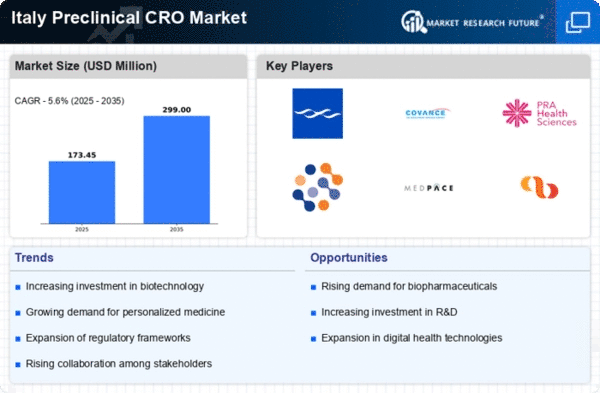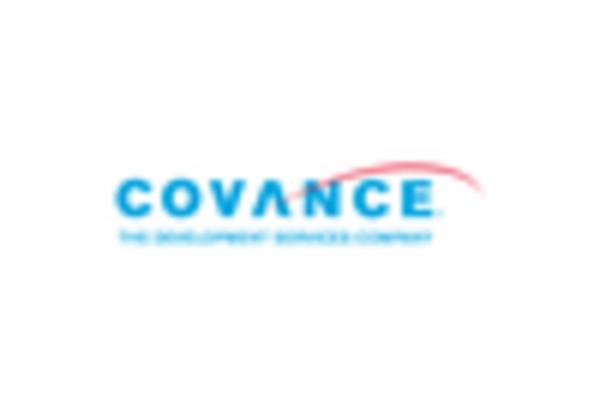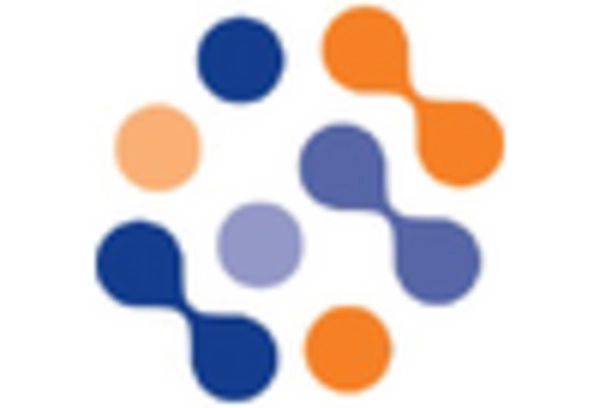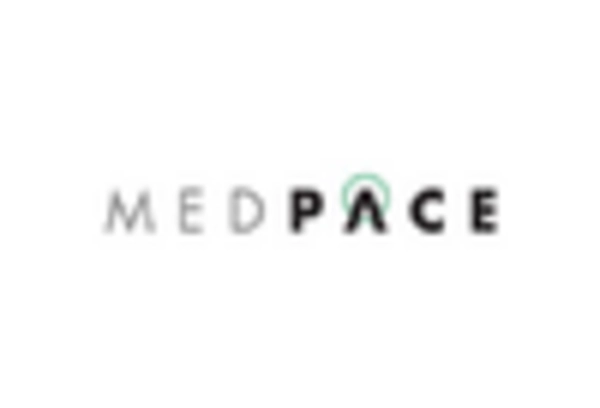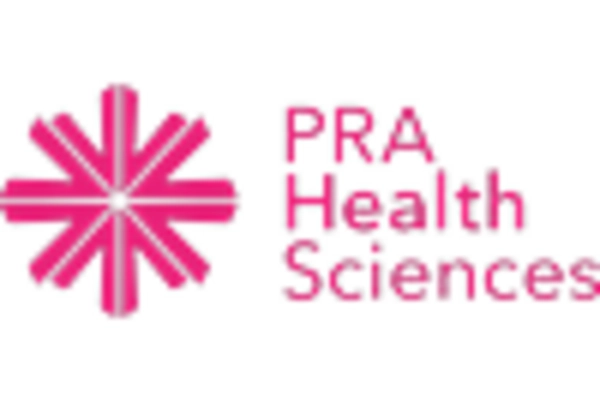Growing Focus on Personalized Medicine
The preclinical CRO market is increasingly driven by the growing focus on personalized medicine in Italy. As healthcare shifts towards more tailored treatment approaches, the demand for preclinical studies that support the development of personalized therapies is likely to rise. This trend necessitates advanced preclinical testing services that can accommodate the unique requirements of individualized treatments. In 2025, it is estimated that the personalized medicine market in Italy could reach €3 billion, which may drive the need for specialized preclinical services. Consequently, contract research organizations are expected to adapt their offerings to meet these evolving demands, thereby positioning themselves strategically within the preclinical cro market. This shift towards personalized medicine may also encourage collaborations between CROs and biopharmaceutical companies, fostering innovation and enhancing the overall market landscape.
Rising Demand for Innovative Therapeutics
The preclinical CRO market is experiencing a rising demand for innovative therapeutics in Italy. As healthcare providers and patients increasingly seek novel treatment options, biopharmaceutical companies are under pressure to expedite the development of new drugs. This trend is likely to result in a heightened need for preclinical services that can support the rapid testing and validation of these innovative therapies. In 2025, the market for innovative therapeutics in Italy is expected to grow by approximately 20%, which may directly influence the preclinical cro market. Contract research organizations that can offer efficient and effective preclinical testing solutions are likely to thrive in this competitive landscape. Additionally, the emphasis on innovation may encourage partnerships between CROs and pharmaceutical companies, further enhancing the capabilities and offerings within the preclinical cro market.
Increasing Investment in Biopharmaceuticals
The preclinical cro market in Italy is experiencing a surge in investment, particularly in the biopharmaceutical sector. This growth is driven by the increasing number of biopharmaceutical companies seeking to develop innovative therapies. In 2025, the Italian biopharmaceutical market is projected to reach approximately €5 billion, indicating a robust demand for preclinical services. As these companies require extensive preclinical testing to ensure safety and efficacy, the preclinical cro market is likely to benefit significantly from this trend. Furthermore, the Italian government has been promoting biopharmaceutical research through various funding initiatives, which may further stimulate the preclinical cro market. This investment climate appears to create a favorable environment for contract research organizations to expand their services and capabilities, thereby enhancing their market position.
Regulatory Changes and Compliance Requirements
The preclinical cro market in Italy is significantly impacted by evolving regulatory changes and compliance requirements. As the regulatory landscape becomes more stringent, biopharmaceutical companies are increasingly reliant on preclinical contract research organizations to navigate these complexities. In 2025, it is anticipated that the demand for regulatory consulting services within the preclinical cro market will grow by approximately 15%. This growth is likely due to the need for CROs to ensure that their clients meet the necessary regulatory standards for drug development. Additionally, the Italian Medicines Agency (AIFA) has been actively updating guidelines, which may further necessitate the expertise of CROs in the preclinical phase. As a result, organizations that can demonstrate compliance and regulatory knowledge are likely to gain a competitive edge in the preclinical cro market.
Expansion of Academic and Research Institutions
The expansion of academic and research institutions in Italy is driving growth in the preclinical CRO market. These institutions are increasingly engaging in research collaborations with contract research organizations to facilitate drug development processes. In 2025, it is projected that research funding for academic institutions in Italy will exceed €1 billion, which may lead to an increased demand for preclinical services. This collaboration not only enhances the capabilities of CROs but also fosters innovation in drug discovery and development. Furthermore, as academic institutions seek to translate their research findings into viable therapies, the reliance on preclinical CROs for testing and validation is likely to intensify. This trend appears to create a symbiotic relationship between academia and the preclinical cro market, ultimately driving growth and development.


